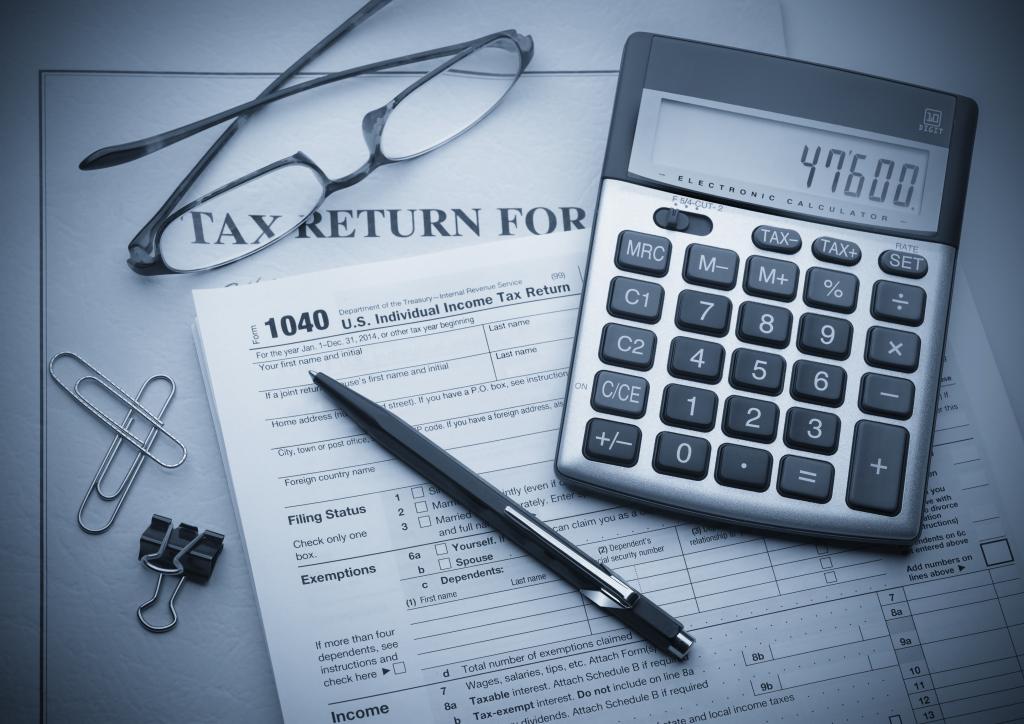It’s time to file your taxes – a task that few people enjoy. Preparing your tax requires paperwork, careful math and accounting, and knowledge of current tax laws. And while many people try to complete their tax returns on their own, that isn’t always the smartest idea.
When you prepare your own taxes, you run the risk of making a mistake. But even a small, simple error could cause serious problems. It could even lead the IRS to open an audit and examine every detail of your finances.
 Christian Delbert / Shutterstock
Christian Delbert / ShutterstockIf you’re hoping to avoid any problems with your taxes, you’ll want to be extra careful with your return. Here are four of the most common mistakes made during tax season, and how you can avoid them if you’re doing your own tax prep.
1. Using the Wrong Tax Form
Preparing your tax return seems like more math than paperwork – but if you choose the wrong paperwork, it can become a total nightmare.
Tax law changes every so often, and the average person doesn’t always stay on top of the latest tax news. And that’s why so many people typically don’t realize that they’re filing their taxes on the wrong form.
When you file your taxes, you have to decide which form you’ll use. And there are a few to choose from. In recent years, The Balance reports some tax forms have become obsolete¹. So, if you aren’t properly prepared, you might send in a tax return that can’t be accepted.
To avoid making this mistake, you can use tax prep software. These programs are typically updated to ensure they offer the right – and most up-to-date – forms. You can also work with a tax professional if you’re unsure which form is the latest version.
If you’re filing your taxes on your own, you can visit the IRS website to determine which form is the version you need to use. Make sure you double-check this information before you file, as it can change from year to year.
2. Mixing Up Numbers
Filling out the basics of your tax return should be pretty easy and straightforward. Once you have your W-2, 1099, and other financial forms in hand, you simply need to enter the data onto your tax return.
However, doing that isn’t always as easy as it sounds. It’s common – so common that The Balance reports that math errors are the most frequent mistake made on tax returns². Whether you’re entering financial data or trying to add up and subtract income with deductions, it’s very easy to accidentally screw up the numbers. Sometimes, people even make the very simple mistake of flipping numbers around, which ultimately affects your whole tax return.
If the IRS finds a discrepancy, Bankrate notes that they’ll let you know – and that could affect how much you owe or how big your refund is³.
So, you’ll want to take the time to go over your forms with a careful eye. Make sure you aren’t reporting $41,265 in income if you really earned $42,156 last year. Double-check that your math is accurate. Add and subtract a few times to ensure you’re getting a consistent result.
3. Misspelling or Using Incorrect Names
Here’s a simple mistake that’s shockingly common. Many people accidentally misspell their names on their tax returns. It’s also common for people to file using an incorrect name.
How is it possible that so many taxpayers get their own names wrong? Well, it’s an easy mistake to make. As Bankrate explains, it’s commonly a problem for individuals who’ve gotten married in the last year – particularly new wives or the newly divorced⁴.
If you changed your last name after getting married, you’ll need to remember to double-check your tax information. Your Social Security number and name need to match, so if you didn’t alert the Social Security Administration of your name change, it could pose a problem.
You’ll also want to double-check that you’ve spelled your name correctly on your tax return regardless of any name changes. Screwing up your name, even by just a few letters, can cause the IRS to delay processing your return. It could even get sent back to you.
4. Forgetting to Include Extra Income
Did you make income beyond your regular job in the past year? Did any of your investments net you some additional money? If so, you likely received a 1099 – officially known as a Form 1099-MISC, Form 1099-INT, or Form 1099-DIV – that detailed the additional money you earned. When you prepare your taxes, you need to make sure you include that extra income.
Unfortunately, it’s easy to forget about those earnings. And that’s why failing to include the information from a 1099 on your tax return is a common mistake.
When you’re sent a 1099, the IRS is also notified of your additional earnings. So, if you forget to include that money in your tax return, you’ll be notified by the IRS that you owe additional taxes. This could cost you more money, especially if you have to pay penalties or interest on any of these unreported earnings.
Make Your Tax Return as Accurate as Possible This Year
Before you begin preparing your tax return, it’s a good idea to be aware of common mistakes. This will help you keep those mistakes in mind – and you can also be on the lookout for them. Filing your taxes doesn’t have to be difficult, but it can become more complicated if you make an error or two.
If you need help preparing your tax return, or just want to ensure it’s as accurate as possible, consider working with tax prep software or a tax professional. Either option can help catch any mistakes and ensure all of the right financial information is reported. You can easily search online for help preparing your taxes. Just make sure you’re using someone – or a service – that’s reputable and trusted.


